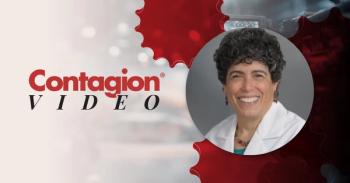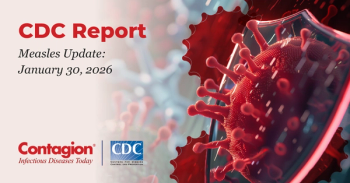
Measles: Addressing Aversion to Vaccination
Segment Description: Key opinion leaders address faulty reasoning behind vaccination aversion, for measles or otherwise, given trends in the disease-prevention paradigm.
Glenn Fennelly, MD, MPH: The main tool that we have to prevent measles is vaccination.
Christina Tan, MD, MPH: Right.
Glenn Fennelly, MD, MPH: And as you pointed out earlier, the vaccine has been available since 1963. It led to a very rapid and impressive reduction in measles both in the United States and globally. Currently the recommendation in the United States is that the vaccine is first administered at 12 months of age, and then it should be administered a second time between 4 and 6 years of age, prior to school entry, which drives, if you will, the enforcement of vaccination.
It’s important to note also that the second dose could be given within 28 days. Many of the children I think who get measles have been immunized only once. The first dose is only about 93% effective; 2 doses gets you to about 97%. So again, this is the best tool. Parents should know that it’s safe and highly effective and to not vaccinate the child could make them vulnerable to the sort of outbreaks we’ve been talking about.
And we commented also on the travel concerns. I think it’s important to note that if you plan travel, there are many, many pockets around the world where there are major outbreaks right now: most of Europe, Israel, other parts of the Middle East, many parts of Africa, Southeast Asia, Madagascar, the Philippines, and Japan, to name a few. So the recommendation here would be to immunize the child beginning at 6 months of age. And then there would be a requirement to reimmunize them because the vaccine may not take because of interference from maternal antibody before a year of age. But I think it’s very important to be aware of that. So could you share with me some of the reasons you’re aware of why parents choose not to vaccinate themselves or their children?
Christina Tan, MD, MPH: It seems that there are a variety of reasons why parents may choose not to vaccinate their child, depending on what kind of information parents might have related to concerns about safety of the vaccine—including not even having enough knowledge about the vaccines themselves. So as far as understanding vaccines, that really is at the crux of trying to help parents understand the importance of vaccinating and to dispel any sort of myths related to vaccine-safety concerns.
In addition to that educational piece, the health care providers are probably the most important piece as far as trying to get support for vaccination among parents, for parents to vaccinate their children. But a lot of states have requirements related to school entry as far as immunization requirements are concerned. So all 50 states require immunization for school entry, and there is an allowance for medical exemptions in all 50 states. There are some states that have variations as far as some allowing religious exemptions and some allowing philosophical exemptions. We know of 3 states right now, for example, that do not allow religious exemptions, and they happen to have some of the lowest rates of vaccine-preventable diseases because of these school-entry requirements—because they’re able to keep their vaccine coverage rates really high.
Glenn Fennelly, MD, MPH: Yes. And I think it’s noteworthy that in New Jersey the overall rate of exemption, I think, is under 2%. The highest proportion, though, is the philosophical or religious exemptions, and it’s in communities where there are high pockets of exemptions that we’re seeing the biggest risk for measles. It’s analogous to the risk of a wildfire. These children are the tinder that can drive that outbreak.
And I think it’s very important to note the population of children who are medically exempt. That makes up a very, very small proportion. But why can we not immunize them? Mainly because they have an immunodeficiency. To give the vaccine could cause some harm. So it’s important for the community to protect those individuals. I recall that during the outbreak in 1989 to 1991 in New York City, in 1 year, there were 5 deaths in New York City from measles. And 4 out of these 5 children were children who could not have been immunized because they had an immunodeficiency.
Christina Tan, MD, MPH: Or they’re too young for that matter, yes.
Glenn Fennelly, MD, MPH: Or if they’re too young, yes, and in the same years there were actually, as I mentioned earlier, 40 cases of measles in infants less than a year of age, who were too young to be immunized. So the entire population of children less than a year of age are at risk, particularly as they hit the 9th through 12th months, when they lose the protective paternal antibodies. So the decision not to immunize a child puts many, many others at very high risk.
Newsletter
Stay ahead of emerging infectious disease threats with expert insights and breaking research. Subscribe now to get updates delivered straight to your inbox.

































































































































